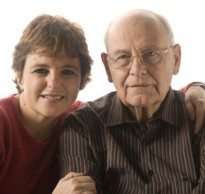Mesothelioma Support Groups
Taking part in a support group can help relieve the stress of the illness for both mesothelioma patients and their families, according to a study in the September 12 issue of the European Journal of Cancer Care. Yet the support needs of this population are not being met, say the authors.
“There is little research in mesothelioma generally, but particularly regarding the patient experience of living with the disease,” says Sally Moore, MSC, BSC, RN, lung cancer nurse specialist at the Royal Marsden NHS Foundation Trust in Surrey, England. “Our care pathways are largely those in place for lung cancer – we haven’t teased out needs that are specific to mesothelioma.”
Support is particularly important to mesothelioma patients, who often face a challenging diagnosis and an uncertain prognosis. Learning that they have the disease can be extremely stressful not only to patients, but to their family members, as well. “Like with any cancer, family members are significantly affected when a loved one is diagnosed with mesothelioma,” Moore says.
To gauge the effects of a support group on mesothelioma patients and their families, Moore and her colleagues established a mesothelioma support group at NHS Foundation Trust, a large teaching hospital in London. The group was named ‘Hands of Time,’ and was led by a patient information officer, psychotherapist, and two lung cancer nurse specialists.
Meetings were held once a month, and patients were invited to bring their family members and close friends. The group discussed the difficulty of getting a diagnosis, as well as treatment options, compensation claims, coping strategies, and other topics. Sometimes speakers gave talks on subjects such as new therapies, communication strategies for talking to health care professionals, and making benefit claims.
During the 16-month study period, 15 support group meetings were held. Between 6 and 14 patients and their friends or family members attended each meeting. When the participants were surveyed about the meetings, all of those who responded said they found the support group helpful. One participant commented that, “It’s nice to meet friendly people with the same illness as myself,” while another said, “It is useful to hear of others’ experiences in an informal and friendly atmosphere.”
The authors found that their support group was relatively easy to set up in a hospital environment, and it was helpful to patients and their loved ones. “Following our experience, we firmly believe this type of group can provide an important source of information and support for some patients with mesothelioma and their family members, helping them to cope better with the effects of the disease and its treatments,” they wrote.
To find a mesothelioma support group in your area call or write Surviving Mesothelioma at 1-888-378-1331 or email: info@survivingmesothelioma.com
Source: Moore S, et al. ‘Hands of Time’: The experience of establishing a support group for people affected by mesothelioma. European Journal of Cancer Care. 2008;17:585-592.






